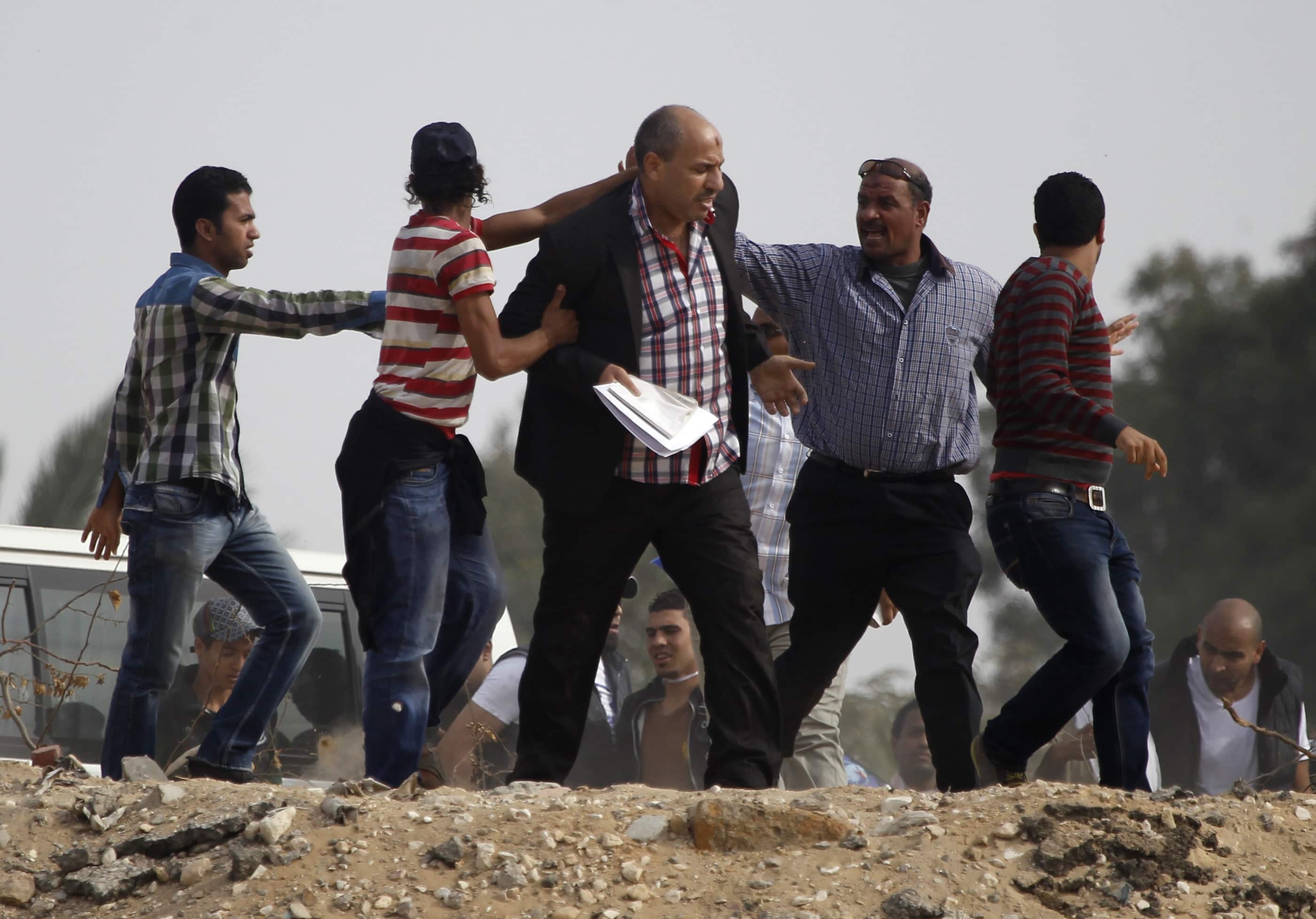Surveillance, restrictive Internet legislation, and cyberattacks compel CPJ to add cyberspace to the list of places trending in the wrong direction.
By Maya Taal
On August 31, 2013, Der Spiegel reported that the United States’ National Security Agency (NSA) had hacked into the private communications of Qatari broadcaster Al-Jazeera. The German news magazine, citing documents leaked by former NSA contractor Edward Snowden, reported that the NSA deemed its operation to access the communications of interesting targets specially protected by Al-Jazeera “a notable success.”
As of late in the year, the action against Al-Jazeera was the only reported instance of the NSA directly spying on any news outlet. But continuing revelations based on the documents obtained by Snowden paint a picture of wide-ranging surveillance by the U.S. and its allies – surveillance that presents a clear threat to global Internet privacy and therefore to freedom of the press worldwide. Digital communication has become essential to newsgathering, and the decentralized nature of the Internet has until now sheltered many journalists around the world who are restricted from reporting or expressing their opinion in traditional media. Furthermore, the U.S. government has undermined its own global leadership position on free expression and Internet openness, especially when it comes to battling efforts by repressive countries like China and Iran to restrict the Internet.
“Countries who seek to gain control over their people through the Internet have their own agendas. They are in search of larger governmental control or even censorship online,” said Marietje Schaake, a member of the European Parliament and leader on Internet freedom issues. “We must ensure the NSA-triggered debate does not become a race to the bottom,” she told CPJ.
The mass surveillance programs by the U.S. and U.K., as well as restrictive Internet legislation by various governments and a wave of cyberattacks globally, are among the alarming developments that have landed cyberspace on CPJ’s Risk List.
CPJ developed the Risk List in 2012 to highlight countries where press freedom is on the decline. This year, we chose to add the supranational platform of cyberspace to the list because of the profound erosion of freedom on the Internet, a critical sphere for journalists worldwide. In 2013, CPJ also identified Egypt and Bangladesh, torn apart by political polarization, with journalists caught in the middle; Syria, which continues to be wracked by violent conflict; and authoritarian Vietnam. Also included are Ecuador, Liberia, Russia, Turkey, and Zambia – all nominal democracies where the space for free expression and independent newsgathering is rapidly shrinking.
The list is based on the expertise of CPJ staff, but also takes into account press freedom indicators such as journalist fatalities and imprisonments, restrictive legislation, state censorship, impunity in anti-press attacks, and journalists driven into exile. Those places on the Risk List are not the worst press freedom offenders, but rather spots where CPJ documented the most significant deterioration of the media climate during 2013. Countries on CPJ’s first Risk List in 2012 but not on this year’s list have not necessarily improved – they have simply been displaced by more recent developments.
Trends witnessed in 2013 include:
- Deterioration in several indicators, including fatalities and censorship, in Egypt
- New legislation to stifle free speech in Ecuador, Liberia, Russia, Vietnam, and Zambia
- Firings and forced resignations of journalists in Turkey at the government’s behest
- Targeted violence against journalists in Bangladesh and Russia, and a soaring rate of abductions in Syria
- Crackdowns on online journalism in Russia, Vietnam, and Bangladesh
Perhaps nowhere did press freedom decline more dramatically in 2013 than Egypt, where persecution of critical reporters under President Mohamed Morsi was radically reversed mid-way through the year when the military ousted him from office and launched a crackdown on pro-Morsi news outlets. At least six journalists had been killed as of late in the year, making the country the third deadliest place to work after Syria and Iraq. Dozens of journalists were detained at least briefly. In addition to state-sponsored censorship, a climate of self-censorship took root.
Negative trends in Liberia and Zambia are of special concern as both are led by governments that promised a new era of freedom of expression. Instead, both places were marked by the continuous and public vilification of the press by authorities, and the systematic muzzling of journalists through the courts. Turkey had already damaged its image as a rising democracy by abusing anti-terror laws to imprison journalists, especially Kurdish ones. Through both verbal and physical attacks on local and international journalists during the Gezi Park protests, Turkey further squeezed the space for independent reporting.
Ecuador and Russia both implemented wide-ranging, vague legislation that gives the government extensive powers to stifle dissent. Ecuador, already known for its abuse of defamation laws, adopted a new Communications Law with broad powers of censorship. The law will be enforced by a state watchdog loyal to President Rafael Correa. Vladimir Putin’s return to the presidency was marked by a rollback of the modest reforms under Dmitry Medvedev, and an increasingly hostile atmosphere for the press. Vietnam issued a new decree that greatly restricted speech on the Internet, a move that threatens the bloggers who represent the country’s only independent media.
Political polarization wracked Bangladesh in 2013, and the line between politics and journalism became more blurred than ever. Journalists were attacked from all sides during a series of protests sparked by political wounds and religious tensions dating back to the country’s secession from Pakistan in 1971.
In Syria, extremely dangerous conditions for reporters became even worse. In addition to remaining the deadliest country for journalists, abductions became increasingly common, making it nearly impossible to cover the uprising.
Read the capsule reports on the 10 places named to the CPJ Risk List.



